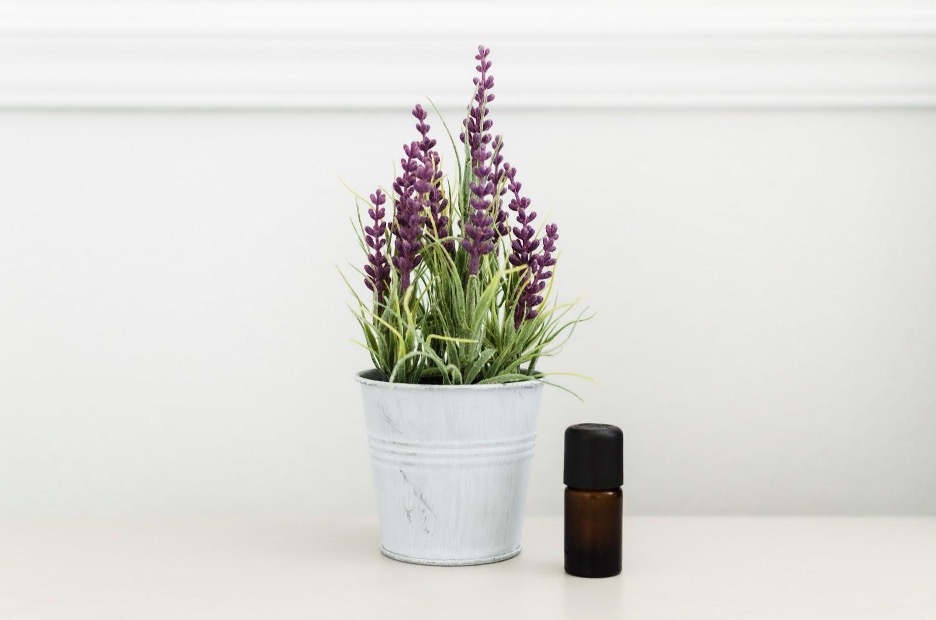As a family carer, use these 10 self-care strategies to take care of yourself, so you can provide the best support and care for your loved one ageing in place.
Love is the first ingredient in any family carers journey. We care for someone we love who needs help navigating an illness or loss of function in some physical or emotional way.
Many carers gradually fall into the role. It is a rare situation for a family to be completely prepared to undertake all of the nuances of caring for a loved one rather than employing in home care services from a home care agency like Home Care Assistance. The physical, emotional, and often financial burdens associated with caring for a loved one who has received a difficult diagnosis of cancer, dementia, or any one of a myriad of health issues is often life-changing and stressful. It is not the way we think things were supposed to go. Yet there you are, filling the gaps that the medical system does not address, and tending to the intimate care needs of your loved one as they are ageing in place.
Not taking care of oneself can lead to carer burnout. Unfortunately for the majority of carers, while we are being the nurse at home, we forget about the love part of the equation as it relates to us, and our mental and physical health can suffer as a consequence. Self-care is an act of love and very few know how to use it especially when it is needed the most. When caring for others, we forget to manage our own well-being. As the story goes, when on a plane and the emergency instructions are being demonstrated, parents are told that in the event of an emergency put the oxygen mask on yourself first, then tend to your child. This analogy works for the carer as well when you are the in home Health Care Worker.
Learning how to take a step back and make sure that you are taken care of can be one of the most difficult aspects of caring for a loved one. Yet, it can open the path to a deeper and richer relationship and quality of well-being for all involved.
What’s Holding You Back from Self-Care?

Who has time for self-care? You have to work, take care of your family, and figure out how to care for someone who is ill or requires special attention and provide in home nursing care. Where is the time?
The reasons to avoid self-care seem to provide enough evidence to make the thought of self-care indulgent and a waste of time. You are not alone. Here is a partial list of what carers say when asked why they avoid self-care when they are providing in home care:
- There is not enough time
- There is too much going on to take the time for myself
- I feel guilty if I take time for myself
- Depression gets in the way
- It is selfish and people will judge me
- It is too hard to manage competing responsibilities
- No one can take care of my loved one as well as I do
The first rule of caring (and living) should be to practice self-care every day. By self-care, we mean that you engage in behaviours that are nurturing, calming, and renewing. We are not talking about potentially harmful quick fixes such as the use of unhealthy foods, alcohol, or drugs that some confuse with self-care. If you provide in home care services for your loved one, evaluate your self-care routine by asking yourself questions like:
- Do I get enough quality sleep?
- Am I eating healthy foods that make me feel nourished?
- Do I have a support group or person I can turn to when faced with a difficult situation?
True self-care is the tool that alters caregiving from being a tidal wave of things to do to an experience that can bring a sense of deep service and heartfelt care. When you take good care of yourself, you can provide in home care services and care for the elderly in your life with the kind of presence that has them feeling supported and loved.
10 Tips for Self-Care for Carers

Carers often report that tending to their own well-being and health concerns is difficult while providing in home care for their loved one. While self-care often simply relates to sleep, diet, and grooming, it is also largely about identifying the unique activities and needs that nurture you and make you feel energised.
- Start small
Once you identify one or two areas that you are willing to work on, start small. A small change in your daily routine of in home care, or with a habit may help give you a renewed perspective on all the tasks on your plate.
- Keep a self-care routine
Create a routine that you become protective about. Whether it’s a morning walk, exercise routine, or a cup of tea at a certain time, guard it and enjoy it. This is vital and you will quickly realise that it is truly okay to prioritise what you need to do to be more available to do your best in home care for your loved one ageing in place.
- Pay attention to your senses
From the most basic aspects of self-care, listening to what our senses are telling us is a vital place to start to figure out what might be most useful to your self-care. Take the time to see, feel, hear, taste, and touch. Go outside and find something beautiful to you, listen to music, sit down for five minutes and breathe, get or give a hug to a person, an animal, or even a tree, or eat something comforting and soothing. All of these are ways to take care of yourself as you provide in home care.
- Speak with a therapist or support group
There are many therapists and support groups available to carers providing in home care. Whether in person or online, these are vital connections that can support you in the journey of in home nursing care.
A skilled therapist can help you process your feelings, give advice on how to set boundaries, and improve communication with your loved one who is ageing in place and other family members. A support group can help with these issues as well, but the attention may be more generalised. Having someone specifically working with you on the challenges you are facing can bring a lot of peace to your day as a nurse at home very quickly.
Also, be aware that other forms of counselling are provided by professional care organisations as well.
- Schedule days off and respite care
Planning time off is essential when you are a carer. It is the thing that allows you to be fully present when you are providing in home care services for your loved one.
For those who are caring for someone who needs around the clock care home care assistance, a home care agency or aged care provider can provide respite care. Respite care can be done in the home, at specialised aged care services and in facilities that offer overnight stays. Respite is a service that can be set up for a few hours, a day, a few days, or a few weeks.
- Be practical, know your limits
If you need help, ask for it. There are ways toask others for help as a carer, or if you are having difficulties navigating the aged care system your loved one uses, ask to speak to a Social Worker. They can and often do provide amazing information and service.
- Be kind to yourself
No one is perfect, and you are human. Mistakes will be made while you provide care in the home. Slow down when things get tough by:
- Paying attention to what you are doing and breathe with awareness
- Speaking and thinking kind thoughts about yourself
- Developing a gratitude practice
- Reflecting in a journal
- Calling a friend
- Reward yourself
When you take that much deserved time off from being an in home care worker, be sure to include doing something special for yourself. Always remember that you deserve to take the time to do the things that bring you joy and a sense of peace. This could include:
- Buying yourself some flowers
- Getting some bodywork done like a massage or facial
- Practicing yoga
- Go on a special walk somewhere you love
- Curl up with a great book
9. Decrease your screen time
Making time to be away from devices is an important aspect of self-care. Being on your phone or your computer too much during your free time away from providing in home nursing care can make you feel more isolated from your friends and family, and can become an unhealthy way of coping with stress if used too much. Try decreasing your screen time by:
- Switching off notifications
- Creating phone-free spaces
- Turning your phone off when you are with friends or family
- Replacing an episode of Netflix with a walk
10. Keep an exercise routine
If you don’t have a regular exercise routine, try making one and sticking to it for a week. Even if it is a simple 10-minute walk each day or a brisk jog to start your day, moving around consistently is a proven way to help support your mental and physical well-being. Use these tricks to help you stay motivated:
- Find a workout buddy and commit to a weekly run or hike
- Set a daily reminder on your phone to get outside
- Make a playlist of songs for your exercise routine
- Put sticky notes around your house reminding you to get outside
5 Self-Care Habits to Beat Burnout
- Don’t hide your feelings from yourself
You are going to experience a wide range of emotions as you provide in home care, and not all of them will feel good. You may feel angry or resentful from time to time and burying these feelings may eventually lead to burnout. Acknowledge these feelings when they come up and give yourself a break from your in home care duties, literally and figuratively speaking. Consider the underlying emotions and take steps to understand them, either on your own or with the help of a counsellor, friend, family member, or other resource. The most important thing is to realise that it is normal to not feel perfectly happy all of the time.
- Maintain your health
You can reduce your chances of slipping into carer burnout if you keep your health strong while providing in home care. This depends greatly on your willingness to take common-sense steps to good health. Make sure that you are incorporating these elements into your life:
- Drink plenty of water
- Go to bed and get up at the same time every day
- Include fruits and veggies in your diet
- See your doctor for regular check-ups
- Get enough protein, iron, and vitamins in your diet
- Relax for 10 minutes
Throughout your time providing in home care services, it can become tempting to just try to power through without breaks, but this can lead to burnout. When you have a lull in the day, set a timer and sit down. You can keep working while resting for a bit by folding the laundry or sorting through the mail while you sit down with your feet up.
You can also turn on your loved one’s favourite TV show, make a cup of your favourite tea, coffee, or hot chocolate and watch it with them. If they don’t have a favourite show, then find one that you like and watch it together as part of your care in the home.
Take some deep breaths while you have a break, and don’t get up until the timer goes off!
- Set realistic goals
When you are the provider of in home care, realising the importance of setting goals will help guard against burnout. You probably won’t be able to care for your loved one, your family, your job, and run a marathon. Set small goals that you can achieve. This will help to avoid guilt, negativity, and ultimately, burnout. Instead of setting a goal of cleaning the entire house on Saturday, set a goal of cleaning the kitchen and the bathroom. That is enough work for the weekend. Then you can accomplish the goal and feel satisfied that you did what you set out to do whilst still managing your in home care responsibilities.
- Do not engage in negative self-talk
Your job is hard enough as it is. Do not become your own worst enemy by talking negatively to yourself. Telling yourself negative messages may prevent you from reaching out for any support that you need. You may believe that even if you ask for help that no one will step in, but that isn’t always true. Positive self-talk will help you to ask for the support and help you need and deserve.
When it comes to self-care, the possibilities are endless. Whatever makes you feel at peace, clear, calm, or even renewed will help with your capacity to provide in home care. You can generate a high level of well-being for yourself by starting with something small and being consistent in practicing it. Try caring for yourself to the level that you want to provide in home care for your loved one and see what happens!
Resources
As a leading age care provider, Home Care Assistance offers tailored in-home care services for older Australians, enabling them to live happier and healthier lives in the comfort of their own homes.
We offer private and government subsidised Care Packages and have office locations that are a registered NDIS provider. Our Care Workers undergo extensive training in order to deliver unmatched in-home aged care services where people can continue ageing in place. We are proud ambassadors of the My Aged Care government funded aged care program, enabling Australians to successfully navigate the process and gain approval for in-home care support packages. Home Care Assistance offers hourly care, specialised care, Alzheimer’s and Dementia care, hospital to home care, and 24 hour in home care.













